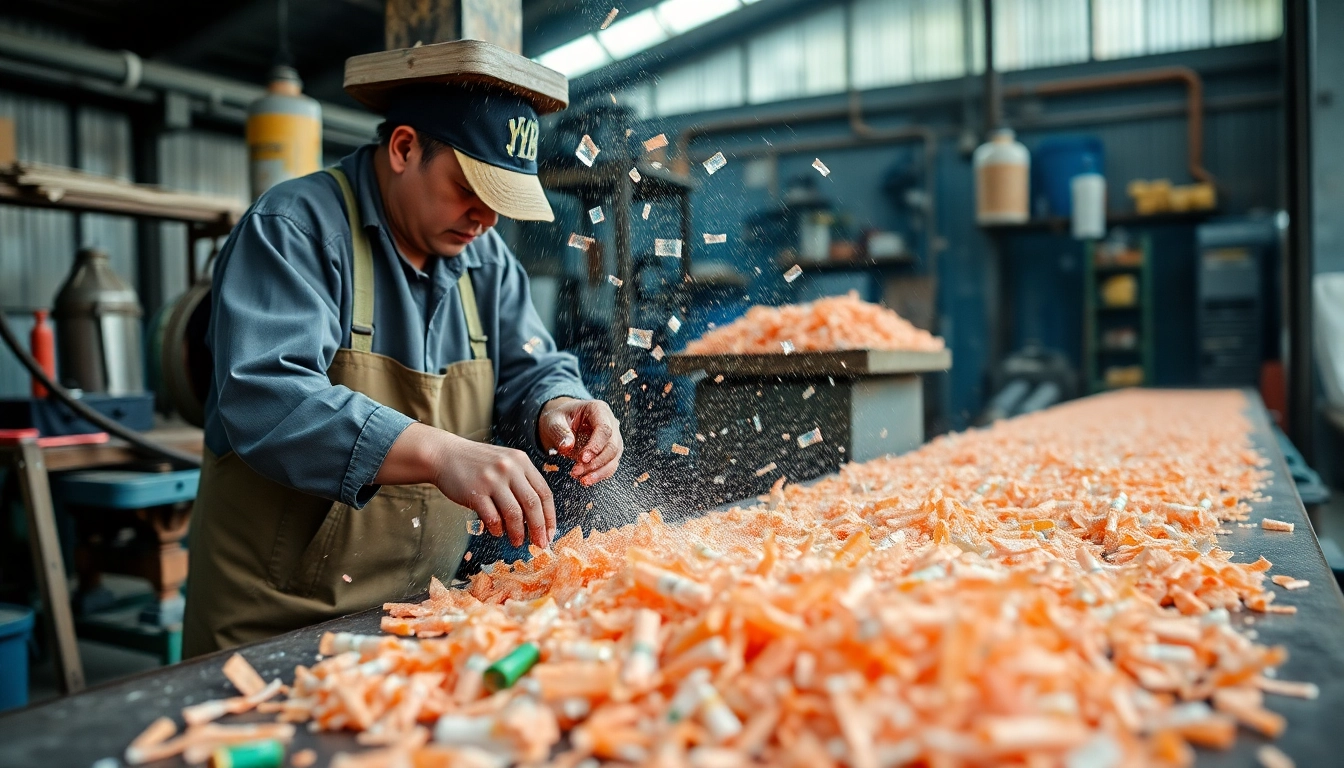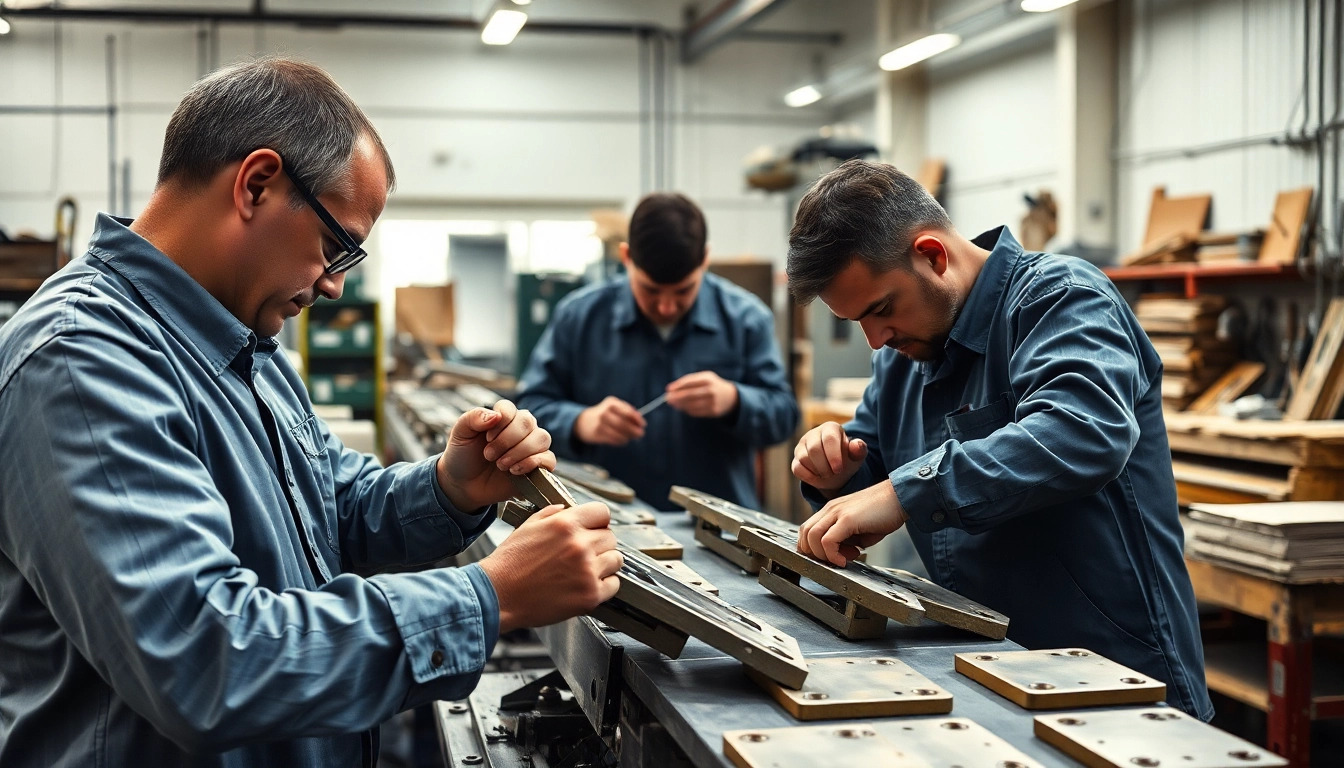
Understanding Filling Machines: An Overview
Filling machines play a crucial role in many industries, automating the packaging process to enhance efficiency and consistency. These machines are essential not only for manufacturers but also for distributors aiming to ensure quality control and compliance with industry standards. Understanding filling machine suppliers is integral to selecting the right equipment for your production needs.
What is a Filling Machine?
A filling machine is a device that dispenses a precise amount of product into a container, such as bottles, cans, or pouches. The main purpose is to ensure that the correct volume of liquid, powder, or viscous material is packaged efficiently. These machines can vary significantly in design and functionality, depending on the type of product being filled and the speed of production required.
Types of Filling Machines
Filling machines can be classified into several categories based on their operation, mechanics, and application. Below are the most common types:
- Gravity Filling Machines: Often used for filling non-viscous liquids, these machines utilize gravity to fill containers, making them cost-effective and simple to operate.
- Piston Filling Machines: Ideal for thicker products, these machines use a moving piston to dispense a predetermined amount of liquid or semi-solid material.
- Pump Filling Machines: Utilizing a pump mechanism, these machines can handle a variety of product viscosities and are highly adaptable for different applications.
- Vacuum Filling Machines: These machines remove air from the container before filling to minimize oxidation and spills, making them suitable for sensitive products.
- Automatic vs. Manual Filling Machines: Automatic machines operate without human intervention, allowing for high-speed production, while manual machines rely on an operator to control the filling process.
Applications of Filling Machines in Various Industries
Filling machines are employed in a variety of industries, including:
- Food and Beverage: Used for filling anything from liquid beverages to solid jams.
- Pharmaceuticals: Critical for ensuring the accurate dosage of medicines in liquid or powder form.
- Cosmetics: Ideal for filling lotions, creams, and perfumes, requiring precision and hygiene.
- Chemicals: Necessary for packaging industrial chemicals safely and accurately.
- Household Products: Commonly found in filling detergents, cleaners, and other household goods.
Choosing the Right Filling Machine Supplier
Choosing the right filling machine supplier is vital for ensuring that you acquire equipment that meets your production needs and standards. This process involves several key factors that need careful consideration.
Factors to Consider When Selecting a Supplier
When evaluating potential filling machine suppliers, consider the following aspects:
- Product Quality: Investigate the quality standards adopted by the supplier. High-quality machines are less likely to require frequent repairs and will enhance your operational efficiency.
- Customization Capabilities: Determine if the supplier offers customized solutions suited to your specific requirements and production conditions.
- Technical Support: Evaluate the level of ongoing technical support and maintenance services offered by the supplier. Reliable support can minimize downtime and ensure smooth operation.
- Delivery and Installation: Understand the logistics involved in getting the machine to your facility, as well as the installation support provided by the supplier. Timely delivery can significantly impact your production schedule.
- Warranty and After-Sales Service: A robust warranty and dependable after-sales service can save costs associated with repairs and maintenance in the long run.
Evaluating Supplier Reputation and Experience
Check the supplier’s years of experience in the industry and their reputation among other businesses. Look for customer testimonials, case studies, and industry awards that showcase their credibility. A reputable supplier is more likely to provide reliable machines and good service.
Cost vs. Quality: Making the Right Investment
While price is certainly a factor when selecting a filling machine supplier, it should not be the only one. High-quality machines may come with a higher initial cost but can provide greater reliability, efficiency, and longevity, ultimately leading to cost savings over time. Therefore, balance your budgetary constraints with the quality of the equipment being offered.
Popular Types of Filling Machines
Choosing the right filling machine depends on various factors including the product type, viscosity, production speed, and packaging. Below, we take a closer look at some of the most popular types of filling machines.
Piston Filling Machines
Piston filling machines are highly versatile and ideal for thick liquids, pastes, and even solid particles. Through a piston mechanism, these machines ensure exact volume control, making them a common choice in industries such as cosmetics and pharmaceuticals. They are available in both manual and automatic variations, accommodating various production scales.
Pump Filling Machines
Pump filling machines utilize different types of pumps — such as diaphragm pumps, peristaltic pumps, and gear pumps — to handle a wide range of product viscosities. They are particularly advantageous in industries dealing with viscous liquids or those that can change properties when pumped. Their adaptability makes them valuable in various sectors including food and chemical industries.
Automated vs. Manual Filling Machines
Automated filling machines significantly improve production speeds and product consistency, while manual machines offer flexibility at lower costs. Automated options are particularly effective in high-volume production environments, yet they necessitate a larger initial investment and more sophisticated operator training. Assessing your production volume and budget is essential when deciding between these options.
Optimizing Filling Machine Efficiency
Maximizing the efficiency of your filling machine can have a profound impact on your overall production output, cost savings, and product quality. Here are some strategies for optimizing performance.
Regular Maintenance & Troubleshooting Tips
Regular maintenance ensures that filling machines operate effectively and reduces the risk of malfunctions. Implement a scheduled maintenance system, including periodic inspections, lubrication, and cleaning. Furthermore, training operators in basic troubleshooting can help quickly resolve minor issues before they escalate.
Best Practices for Operation Efficiency
To improve operational efficiency, consider implementing the following best practices:
- Standard Operating Procedures (SOP): Develop clear SOPs for machine operation and maintenance to enhance consistency.
- Training: Regularly train staff on the latest protocols and machine functionalities to ensure optimal operation.
- Performance Metrics: Monitor key performance indicators (KPIs) such as fill accuracy, cycle times, and downtime to identify bottlenecks and areas for improvement.
Adapting to Production Demands
As production demands fluctuate, your filling processes may need to adapt accordingly. Ensure that your filling equipment is flexible enough to accommodate varying batch sizes and product formulations. This adaptability can help mitigate the costs associated with downtime or equipment redundancy.
The Future of Filling Machines
The filling machine industry is evolving, driven by advancements in technology, changing consumer demands, and increased competition. Here are some of the emerging trends that may shape the future of this market.
Emerging Trends in Filling Technology
Technological advancements, including smart sensors and IoT connectivity, are enabling the development of smarter filling machines with predictive maintenance capabilities and automated reporting functions. These technologies allow companies to gather real-time data, helping to improve decision-making and enhance operational efficiency.
Sustainability in Filling Operations
As industries strive for sustainability, filling machine manufacturers are focusing on creating equipment that minimizes waste, reduces energy consumption, and accommodates recyclable or eco-friendly packaging materials. Companies will increasingly prioritize their environmental impact in their operational practices.
Integrating Smart Technology
Integration of smart technology such as machine learning and data analytics into filling machines can enhance their functionality and precision. Automated error detection systems can promptly alert operators to issues, thereby reducing downtime and improving operational reliability. Investing in these smart technologies will become essential for businesses looking to stay competitive in the fast-evolving marketplace.








